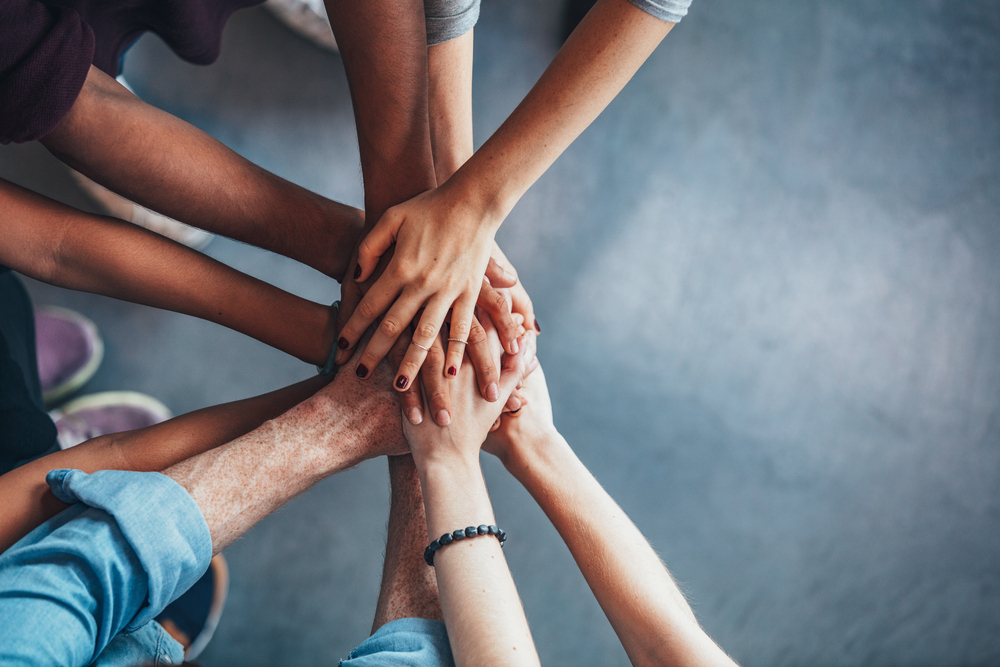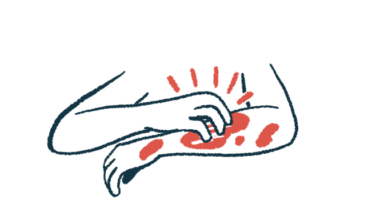EB Affects All Aspects of Daily Life, Patients Say in Interview Study

Jacob Lund/Shutterstock
Ways to improve the quality of life for people with epidermolysis bullosa (EB) are needed, as those living with the disorder report a range of psychological and social impacts.
In a series of interviews, a group of children and young adults with EB described their disease as significantly affecting daily life and interactions at school, within the family, and in society at large.
Findings are detailed in the study “Psychosocial impact of epidermolysis bullosa on patients: A qualitative study,” published in the journal Pediatric Dermatology.
With visible symptoms, daily care requirements, and limitations in performing regular activities, EB places a considerable burden on patients and caregivers alike.
Although the psychological and social — called psychosocial — impacts of EB represent a significant concern to those living with the disorder, relatively little research has addressed these concerns and how best to improve patients’ quality of life.
A team of investigators at the University of Toronto and the Hospital for Sick Children interviewed eight people with EB (ages 12 to 20) attending the 2006 DEBRA Family Conference in Toronto. Five had recessive dystrophic EB, one dominant dystrophic EB, and two EB simplex.
Four main areas of impact emerged from an analysis of the interviews: school interaction, daily life, family interactions, and societal interactions.
Participants described difficult social interactions at school, both with other students and with educators. Peers might tease or avoid those with EB, while school personnel treated them differently. A misguided fear of EB being contagious was noted as the reason for avoidance.
Despite no scientific evidence of a correlation between EB and cognitive issues, educators appeared to regularly question the mental capacities of children with EB, who frequently had to undergo tests for presumed learning disabilities.
One person recounted a teacher describing her as “retarded” to her parents, prompting a battery of psychoeducational testing. In Grade 4 at the time, she showed a Grade 11 reading capability.
Individuals with EB often miss school for reasons that include medical appointments and hospital admissions, and may need assistance with note taking, all of which can affect academic performance. The bullying sometimes associated with EB also encourages some to skip classes, reinforcing the disease’s impact on academics, the scientists wrote.
Because of this, they suggested that both educators and peers be educated about EB, in order to encourage a safer and more inclusive school environment.
People with severe EB described feeling held back from social activities and being unable to make spontaneous daily life decisions due to wound care and other time-consuming EB-related procedures.
One participant, for instance, described “waking up on a Saturday morning and people out on the street playing hockey … and thinking, before I can go out, before I can do fun stuff … I have to do all this medical stuff.”
The interviews revealed complicated family interactions. While one person with severe EB reported meeting resistance from her family at the mention of moving out of the family home, others with milder cases expressed concern at not being kept in safe enough a “bubble.”
Participants also expressed feelings of guilt at the amount of time family members spent caring for them.
“I feel so guilty sometimes,” said one. “Like when my mom was still working … she came home and she would still have to do the dressings for like an hour and I felt so guilty that she couldn’t just sit down, and read a book, and drink her coffee.”
Another described feeling responsible for how the condition affects a brother, pulling the mother’s attention away from the brother when he needed it, and subsequently complicating the siblings’ relationship with each other.
Simply being out in society also created challenges, with patients often describing being stared at and made to feel “imperfect.” Other uncomfortable interactions included unsolicited advice on how to cure their skin, involving products such as emu oil and various skin creams.
Based on these interviews, the researchers compiled a list of suggestions on how quality of life might be improved for people with EB.
Items include assessing concerns of bullying regardless of a person’s EB subtype, mandatory EB education at schools for both staff and students, summer and winter camps for those with EB, caregiver and sibling support programs, and public awareness campaigns.
In addition, the team commented that “additional studies are needed to determine the role that social media plays in providing psychosocial support to these vulnerable patients.”






